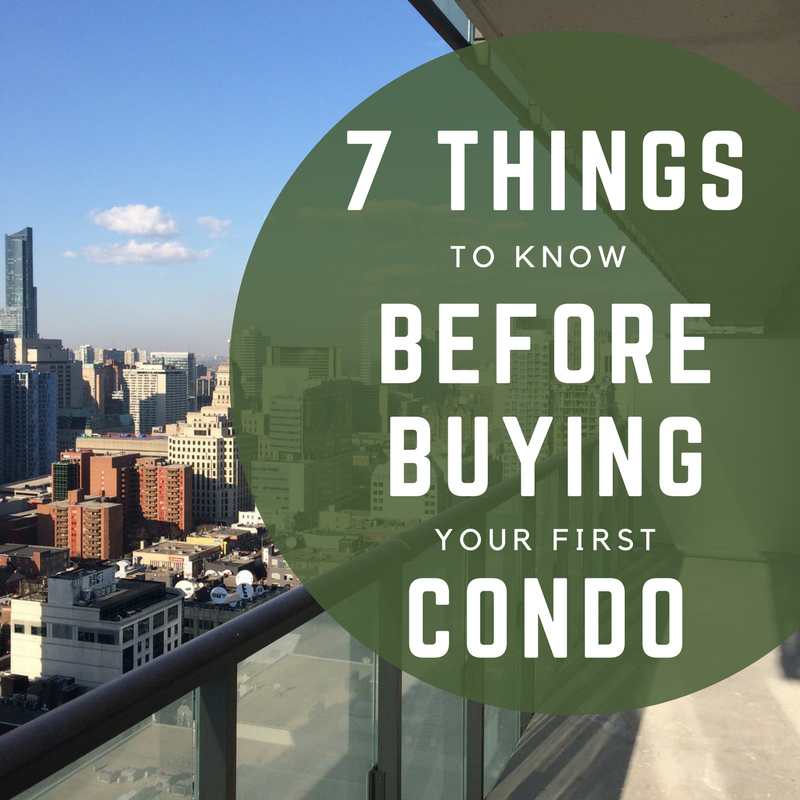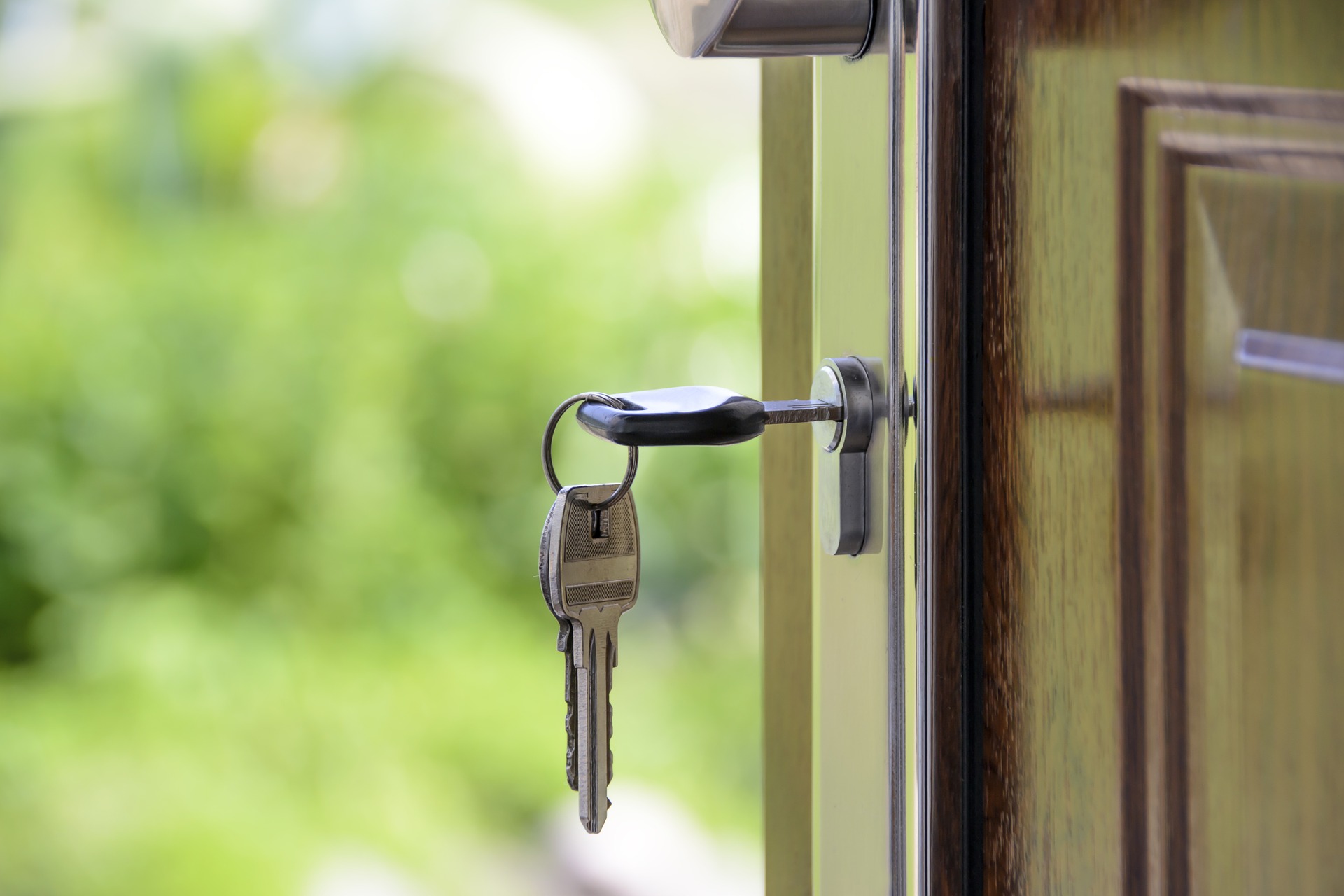
This is an exciting time in your life! Take a moment to celebrate. Now that’s out of your system, take a few more moments to make sure you know what you are getting yourself into. Buying a place is a huge financial responsibility. Here is some crucial knowledge that you must be aware of before you buy your new home.
#1. You won’t own the place until closing

There is no such thing as automatically owning a place once your offer is accepted. For condominiums or freehold homes there are (usually) three stages: 1. The Agreement of Purchase and Sale 2. Title Search and 3. The Closing.
Now let’s break down these stages so you understand what each stage entails.
First stage: The Agreement of Purchase and Sale sets out the basic terms such as price, closing date and any conditions. This is a very important contract and should be negotiated before being signed.
The second stage, title search, is for your lawyer to do their due diligence and to make sure the person selling you the land is the owner. At some point in the chain of ownership an owner could have unknowingly made a mistake and contravened one of the laws resulting in a loss of ownership (Planning Act/escheat to crown). You can’t sell a place you don’t own. You can’t buy a place from someone who doesn’t own it. At this stage you should decide whether to buy title insurance (more on that later).
The closing stage is where the lawyer receives your down payment and the mortgage money from the bank. The money that covers the purchase price is transferred to the seller’s lawyer on closing day. The seller sends over the keys with the deed and other legal documents. The lawyer registers the transfer and mortgage on title and pays registration fee and land transfer tax. Now you are the owner!
Its definitely more of a marathon then a sprint.
#2. You should see your lawyer before signing in the first place

Before signing the Agreement of Purchase and Sale (the “Agreement”), consider seeing your lawyer. This Agreement is a contract and an important one. The basic concepts of contract law apply which means that there needs to be an: offer, acceptance, consideration, meeting of minds, and writing (Statute of Frauds).
This is hands down (likely) to be the biggest amount of money you’ll ever offer to give. Since so much is at stake financially, don’t be tempted to sign when you find your dream home! Ask for a copy of the Agreement and send it to your lawyer for a quick revision. This way you know the terms of your offer and your lawyer will likely negotiate conditions in your favour.
For your home or condo (residential real estate), there is a standard form of agreement used by the Ontario Real Estate Association (OREA). Yes, there is a “standard” contract but don’t think that means you’re signing the “standard” form. Most likely, the condo developer/owner’s lawyer has added terms that are favourable to them. It is up to the lawyer (or your real estate agent if you’re in a multiple offer situation) to add or remove clauses that suit your needs.
Once you sign the Agreement, you are deemed to understand what you offered. This is a legally binding contract you should see your lawyer before signing if you’re even the least bit worried.
#3. You have ten days from signing to see your lawyer for pre-construction condo from plans

If you are buying off plans then you can take advantage of the 10-day “cooling off” period (s.73 Condominium Act). You have a 10-day grace period to change your mind and get out of the Agreement. This is only if you are buying pre-construction real estate bought directly from a builder. It does not apply to resale purchases.
Take advantage of this period! Go see your lawyer immediately after signing. You are in the best position – you have your dream home – now you just have to make sure it is all you hoped it to be. If your lawyer finds something that you don’t like in those ten days, then you can easily back out. After ten days, you are locked into the Agreement you signed.
#4. There are two land transfer taxes in Toronto

If you are buying in Toronto, there are two land transfer taxes: Provincial Land Transfer Tax (PLTT) and for Toronto, Municipal Land Transfer Tax (MLTT).
Keep these extra costs in mind. If your condo is 500k, your PLTT is $6,475 and your MLTT $5,725. This totals $12,200.
#5. You don’t have to pay land transfer tax if you’re a first time homebuyer

The good news? First time-home buyers may be eligible for an immediate “refund” at the time of registration, which essentially means you don’t pay land transfer tax.
Of course, you have to qualify for this refund. Mainly, you can’t own a home anywhere in the world and your spouse also can’t own a home while they are your spouse. For the whole list of requirements check out the governments publication Land Transfer Tax Refunds for First-Time Homebuyers.
#6 Title insurance is optional but you should get it and the bank may make you anyway

The bank (lender) will very likely require you to buy title insurance to cover their mortgage amount which is considered lender coverage. For a 500k home, lender coverage costs around $200 and to insure your title to the full amount it will cost about $150 more. So for a 500k place, title insurance for full coverage would cost around $350. Worth it.
Title insurance is a one-time fee and protects you as long as you own the property. For more information on title insurance click here.
Aside from the fact that the bank may make you get it, title insurance is optional. To understand title insurance, you need to understand title and survey.
Title means legal ownership. You obtain title when the owner signs the deed over to you and title is registered in the government’s land registration system. There are many ways title fraud can occur and fraudsters are getting more sophisticated. The most common is where (without your knowledge) the fraudster uses stolen personal information and transfers your home’s title to them. The fraudster gets a mortgage on your home and runs away with the cash. Title insurance protects against this loss and other instances of title fraud.
A survey is a two-part report prepared by a qualified Ontario land surveyor and it shows the features of the land such as buildings and fences. Title insurance covers survey-related issues or where no survey exists. You thought a shed was on your property and it turns out it is on your neighbour’s property and now your neighbour wants it removed. This is an encroachment issue and is covered against title insurance. For a full comprehensive list of what title insurance does/doesn’t cover check out Understanding Title Insurance.
Title fraud applies to both home and condo purchases. For peace of mind, title insurance is a very worthwhile expense.
#7 Keep some extra cash in your bank account

A few things to mention when it comes to money.
There are A LOT of extra costs due on closing that exceed the purchase price such as taxes, legal fees and (optional) title insurance so budget accordingly. I found a good list of extra costs here so check it out and know what to expect to avoid sticker shock.
Make sure you know the monthly condo expenses and keep in mind that these are subject to change. Be aware that if there is a special assessment, such as problems with the parking garage, then every owner is required to pay for the repair.
Also keep in mind that for pre-construction condos, there can be a lengthy delay between stage 1 (signing the Agreement) and stage 3 (closing). The mortgage rate will likely not be the same two to three years from signing the Agreement. A personal example is when a friend of mine signed an Agreement for a condo that was not built yet and it closed three years later. The mortgage rate went up significantly and she was left paying more interest. Make sure you have enough funds in case the interest rates go up. You can’t get out of your Agreement of Purchase and Sale because of interest rates.

Buying a place is exciting and nauseating at the same time! It does not need to be stressful if you are knowledgeable and plan accordingly.
These are some of the highlights of things to think about when hunting for your dream home.

I wish I read this before I bought my condo! TAKE NOTE ON #7 THERE ARE SO MANY EXTRA COSTS!
Very good information. Thank you for writing this.
I am looking to buy a new condo so this is helpful.